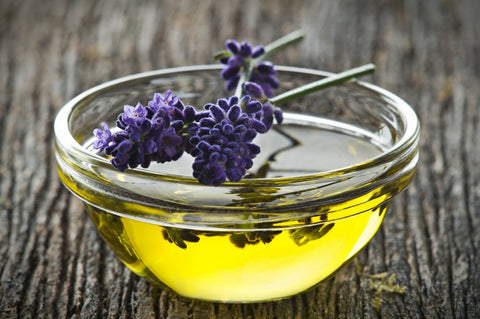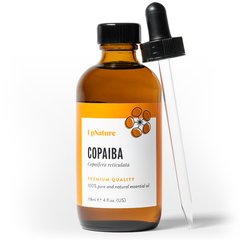It’s the time of year for celebrations, festive meals, relaxing and indulging. For eating and drinking those things that perhaps you might normally decline. I’m sure most of us will experience a little digestive discomfort at some point over the festivities. Whether you have eaten too much or overly rich food or just struggling to harmonize with the change in routine. You may find this leaves your digestive system feeling a little unbalanced.
I hope that the following Aromatherapy suggestions will help restore a little balance and comfort, helping to support your digestive system and allow you to continue with your festivities.
Beneficial Properties Of Essential Oils For Digestive Support

Essential oils are made up of various natural chemical components. It is these very same constituents that create different properties in each essential oil. This is what the particular oil is known to be useful for. Below I will list the properties which can be useful to support healthy digestion.
Analgesic
Pain-relieving
Antiemetic
Reducing the desire or symptoms of nausea and vomiting
Antispasmodic
Preventing or relieving spasms of smooth muscle fiber
Antipyretic
Encouraging appetite, generally by starting the secretion of saliva or gastric juices
Aperient
A mild laxative
Carminative
Settles digestion by reducing or preventing the formation of intestinal gas
Chologogue
Aids digestion of fats
Digestive
Aids the process of digestion
Restorative
Strengthening, tonifying, aiding proper functioning
Siolagogue
Increasing the flow of saliva, aiding digestion by this
Stomachic
Stimulating action of the stomach, tonic action on the stomach
Tonic
Assists proper functioning
Beneficial Essential Oils To Help Support Healthy Digestive Function
I will now detail some of the best UpNature essential oils for a whole range of digestive issues which I hope will help you to help your digestion.
Copaiba
Copaifera reticulata
I wanted to include this essential oil as it is incredibly useful for supporting the nervous system, helping to reduce stress and anxiety. Our digestive systems are inextricably linked to our nervous system, so if we are calm, chances are so will our digestive systems. This is the perfect essential oil for stress-related digestive complaints and nervous digestion.
Frankincense
Boswellia serrata
Another essential oil for digestive complaints of a nervous origin. Frankincense can really help soothe digestive spasms due to its antispasmodic action on smooth tissue (which your digestive system is made up of). The calming aroma also encourages you to breathe deeply and stay in the moment, which should lower stress levels, encouraging healthy digestion.
Dutch Lavender
Lavandula intermedia
Dutch Lavender, aka Lavandin, has some wonderful properties to help with digestion. It is known to help with abdominal cramps due to its antispasmodic action on smooth tissue and its analgesic action.
Also being a great nervous system tonic with its Nervine and calmative properties, it should help ease stress and tension.
Lemongrass
Cymbopogon
Lemongrass essential has such helpful actions on your digestive function. Its properties including being an appetite stimulant, which can help if all the junk food has taken its toll and you are wanting to get back into healthy eating. It can stimulate sluggish digestion through its action on peristalsis, relieve flatulence, and soothe indigestion and nausea.
Grapefruit
Citrus paradisi
Grapefruit is a prime digestive oil. It has so many properties that can help with digestion, such as supporting with poor appetite (particularly in convalescence). Relieving indigestion (particularly due to over-rich and fatty foods). Stimulating sluggish digestion. Supporting overloaded and toxic livers. Soothing digestive spasm and relieving flatulence.
Sweet Orange
Citrus sinensis
Sweet Orange is another prime digestive oil. The citrus oils are generally suited to digestive issues. It is of great benefit when stress and tension impact on proper digestion, appetite, and nervous indigestion, due to it's calming action to the nervous system. It acts as a digestive stimulant and tonic. It helps to relieve constipation, dyspepsia, flatulence, sluggish digestion, indigestion (especially from fatty foods), abdominal bloating and digestive spasm.
Patchouli
Pogostemon cablin
Patchouli essential oil is another great digestive support oil, especially for stress-related digestive upsets. It can help to relieve abdominal distention and bloating, constipation, diarrhea, IBS and loss of appetite.
Peppermint
Mentha piperita
Peppermint essential oil really does offer support with the A-Z of digestive disharmonies. It is available from UpNature in the essential oil gift set and as a handy rollerball. Both of these are perfect travel companions for over the festive period as peppermint essential oil is known to support the digestion of rich or fatty foods. Pop them in your bag and use them in case of feelings of nausea, travel sickness or other digestive symptoms as a result of overindulgence. You could apply the rollerball to your temples if you end up with a headache or mental fog from all the festive treats. You can receive great benefit from the pure essential oil used in a gentle abdominal massage or compress, to help relieve pain, digestive spasm, indigestion, reflux, sluggish digestion, belching, flatulence, diarrhea, constipation, IBS, abdominal distention.
Application Methods For Digestive Support.
Here are some effective ways to administer your essential oils, to help with your healthy digestion.
Gentle abdominal massage

Massage your chosen digestive blend of essential oils into your tummy for a soothing way to help calm digestive disturbances.
Choose any combination of the UpNature essential oils I have suggested above or any other from the entire UpNature range.
We will be working at a 2.5% dilution for adults with no contraindications.
This will equate to 25 drops of essential oils into 50ml carrier oil.
Choose a glass bottle and fill with 50ml carrier oil, then simply drop up to 25 drops of your chosen essential oils into the carrier oil in the bottle. and shake well to combine. Massage in a clockwise direction into your abdomen.
Aromatherapy Compress

If you are finding a gentle abdominal massage is a little uncomfortable, perhaps due to pain or nausea symptoms, another idea, which is also very soothing is to use a hot aromatherapy compress.
Using a large glass bowl, fill with hot, but not boiling water. Add between 1-4 drops of your chosen essential oils to suit your digestive symptoms. Stir to break up droplets of essential oils. Carefully lay a thick paper kitchen towel or clean cotton or muslin piece over the surface of the water. Immediately remove shaking off any excess water from the paper towel or lightly squeezing if using the material. Apply to the affected area for 5-10 minutes until the paper/ material is cooled. Reapply as needed. To hold in place on the abdomen if you find it easier, you pay overwrap with clingfilm or a towel.
Rollerballs
Rollerballs are such a convenient and easy way to use essential oils and best of all they are pre-blended, so they are ready to use. So if you like the sound of any of the essential oils I have described above and would like the convenience of a rollerball, check out the full UpNature roll-ons range to choose your rollerball for digestive support.
Remember Your Carrier Oils
Please bear in mind that before using essential oils topically, they must be diluted with a suitable carrier oil.
How To Use Essential Oils Safely (and therefore effectively)
Essential oils are powerful natural substances that can help support us through their various properties and actions. It is also important to realize that just because something comes from nature, it doesn't mean it is automatically safe to use however we please, (Take poison ivy as an example).
However luckily for us, when used with a little bit of knowledge and within a few simple guidelines, essential oils can be a great tool to help support our health and wellbeing. It's not about being scared to use them. It's about understanding how to get the most from the, safely. Using them correctly will mean they work more effectively. The saying less is more applies in Aromatherapy.
I'm sure that if you are interested in essential oils and aromatherapy, you will have inevitably come across misinformation with regards to their usage. The problem lies when the source of that information comes from an untrained person. Always consult someone trained in the correct usage of essential oils... an aromatherapist. Which is why I wanted to offer you some helpful guidelines so that you can access the most benefits from your essential oils, without side effects.
To get the most out of your essential oils
Consult a trained aromatherapist before using essential oils if you have a medical condition, are taking medications, are pregnant/ breastfeeding, have any allergies, or if you have any other concerns. Essential oils are powerful substances, which make them so helpful. It just means that there can be some contraindications with certain oils if you have any of the above circumstances. So it's important to follow specific advice, which I'm sure is well worth the time and investment.
There may be essential oil specific guidance. Ensure that the essential oil you have chosen is suitable for you. Does it have any safety precautions to consider? Some do, some don't. Your aromatherapist will advise on the above circumstances. For anything else such as sensitive skin, please refer to our
UpNature ebooks on the particular oil, you have purchased for more in-depth information.
Make sure your essential oils are correctly diluted if applying topically, using the topical use chart above.
There is no such thing as an official internal use graded essential oil. These are just phrases that have been coined but have no basis. They make things confusing. Whilst it is true that, yes, essential oils are used in the food manufacturing industry, however, this is only in tiny, highly controlled quantities. It doesn't automatically mean they can be ingested in other settings, even if they have been labeled for such use. Be cautious of terms such as internal use, food-grade. Or any advice to drink a drop or two in a glass of water. I would advise you never to do this. Never use essential oils internally. There is no benefit to this practice. Oils are not water-soluble and will not, therefore, dilute when dropped into water. Undiluted essential oils should not be used on the skin, so imaging the effect on your delicate internal organs. If this is something that you still want to pursue and I understand that you might already be convinced due to the current trend of marketing this unsafe practice has received, please, at the very least make an appointment with a highly trained aromatherapist to discuss this further.
Refrain from using undiluted on the skin. Only in emergencies and with a few limited essential oils. Again refer to an aromatherapist for specific exceptions.
Precautions You Should Take When Using Essential Oils For Colds and Flu Relief
If you are not sure how to use essential oils for cold and flu relief, ask for the advice of your doctor or a licensed natural health practitioner.
If you are pregnant, suffer from hypertension or have epilepsy, you should avoid rosemary and clove bud essential oils. Again, ask your doctor of any questions.
Remember that essential oils with a citrus note are sensitizing and phototoxic, so use these oils sparingly, especially if you are going outdoors.
Although reactions are rare with proper use, always perform a patch test before using a new essential oil to ensure you will not have an allergic response to it.
And, if you found this information useful, please “Like it” and share it with your friends so that they can learn how essential oils for colds and flu relief can help them, as well.
*NOTE THAT THIS ARTICLE IS FOR INFORMATIONAL PURPOSES ONLY, AND FOR ANY MEDICAL CONDITION, YOU SHOULD SEEK THE ADVICE OF YOUR DOCTOR.
Let us know how these beneficial essential oils helped support you this fall in the comments below!
*Please note: The suggested applications need to be appropriately diluted. There may also be essential oil specific guidance - please refer to our UpNature eBooks or consult an aromatherapist for more in-depth information.
Shop these and all of our essential oils on UpNature!


Comments (0)
Back to Blog